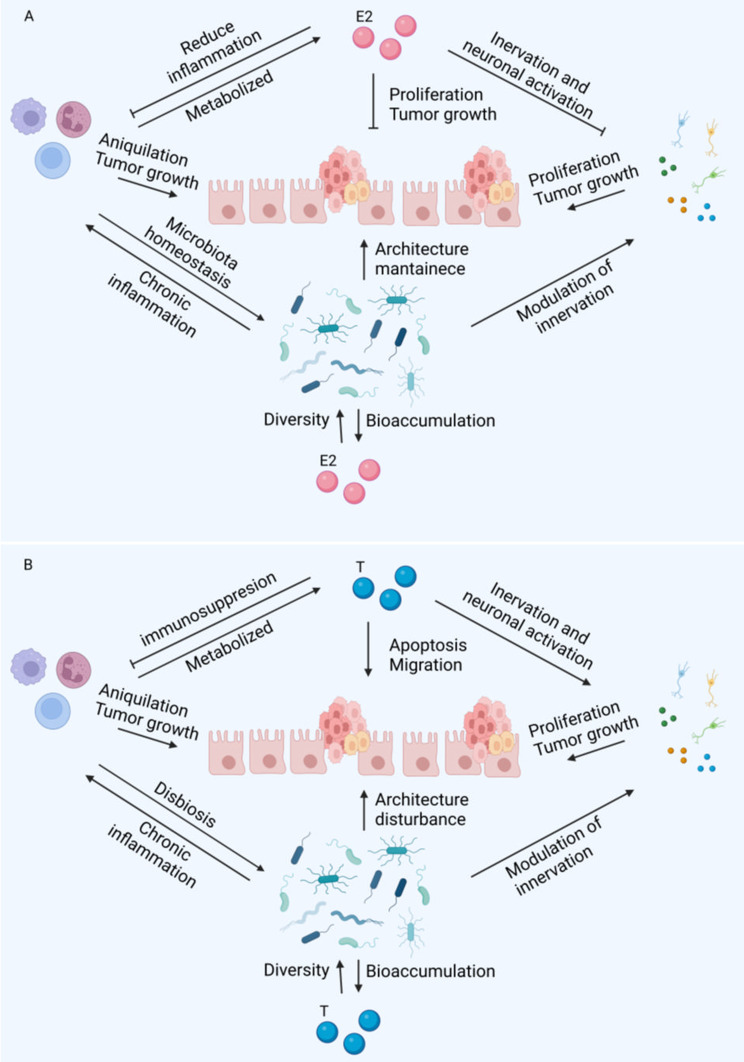Fig. 4.
Regulation of sex steroids to neuroinmmunedocrine network. E2 potentially inhibits tumoral progression by several mechanisms. First, this hormone avoids chronic inflammation; affects the enteric system. Primarily, it stimulates neurogenesis and maintains tissue architecture. Also, increase the diversity of bacteria which protects against the development of tumors. Finally, E2 reduce the proliferation of tumor cells directly through their interaction with ER-β (A). Possible regulatory effects of androgens on the neuroendocrine network and repercussions for tumor growth. Contrarily, androgens play an immunosuppressive role that potentially help tumor cells to evade immune response. These molecules stimulate the release of catecholamines, 5-HT and Ach that promotes tumor growth and invasion. Additionally, androgens reduce the diversity of bacteria in the microbiota. Finally, stimulate apoptosis and migration of tumor cells directly (B). T: testosterone. E2: estradiol. This figure was created with BioRender.com

